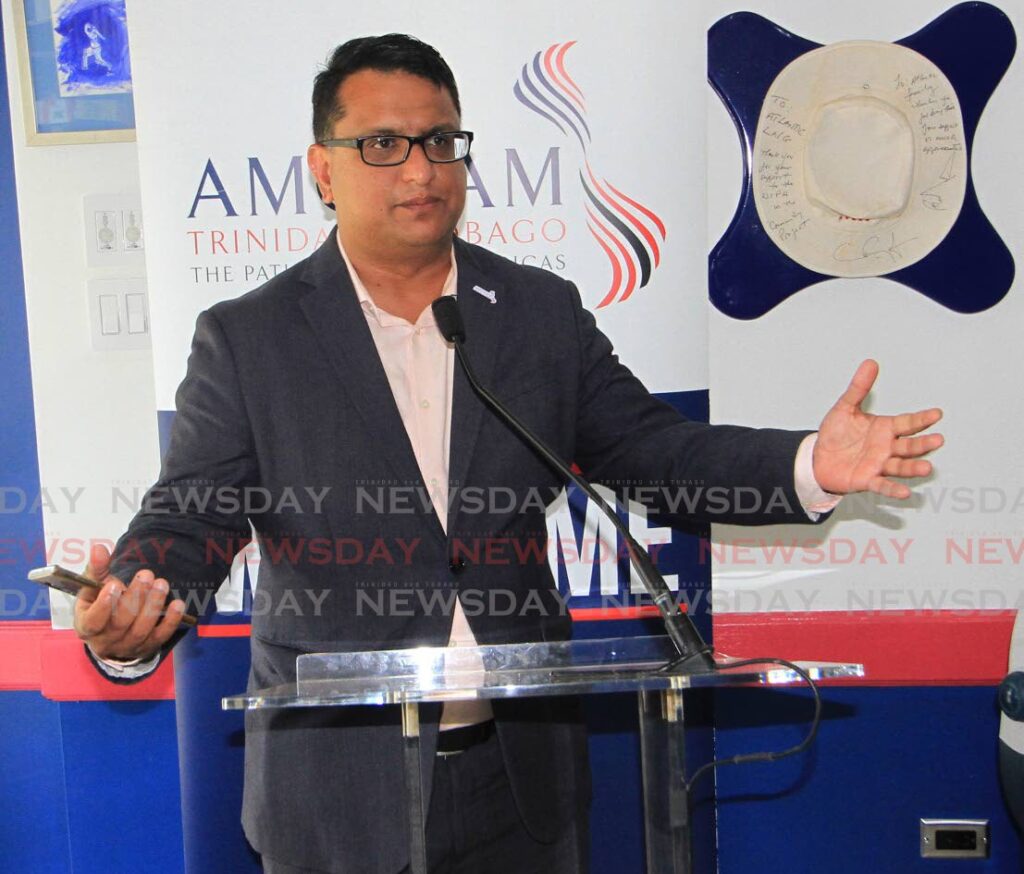Amcham CEO: Need to look at work in post-pandemic world

AMERICAN Chamber of Commerce (Amcham) CEO Nirad Tewarie has said there is a need to examine what type of work models best suit individuals and organisations in a post-covid19 pandemic world.
He made this observation when he spoke at an Amcham Health, Safety, Security and Environment (HSSE) conference at Cara Suites Hotel, Claxton Bay on Thursday. The meeting is one of the precursor events to AMCHAM's HSSE Conference at the Hyatt Regency Hotel, Port of Spain from November 1-3.
"As we transition into what we hope is a post-pandemic world, we have seen an increase in the organisational risks to the traditional models."
Tewarie said, "There has also been a significant boost in digitalisation in the corporate environment, and we have also witnessed an increase in productivity with employees working from home or other locations."
He noted positive effects these developments have on organisations, "as employees have reported feeling less stressed getting to work – having avoided long hours of traffic – and feeling more comfortable working in a familiar, safe, and convenient environment."
But Tewarie also acknowledged there was some truth to what the Prime Minister said after the 2022/2023 budget presentation in Parliament on Monday, about no established protocols for public-sector employees working from home before or during the pandemic.
In contrast to the public sector, he continued, Amcham and other private-sector organisations "have embraced flexi-workplace policies."
Consideration of the type of work models used by different organisations to increase productivity in a post-pandemic world could involve embracing more such policies.
Against this background and ongoing collective bargaining negotiations for public-sector workers, Tewarie said, "There is probably an opportunity to explore opportunities for remote work for some types of jobs in the public sector.
"The processes and systems that would enable remote work in the public sector would also likely improve the ease with which citizens interact with the state."
But there are downsides to organisations using policies under which some of their employees work from home.
While acknowledging concerns of employees about their work environment being safe (because of covid19) and those of employers about creating a safe working environment for employees and customers, Tewarie identified a major flaw in any work-from-home approach.
"How do we access what is going on with our employees when they are working remotely?"
Tewarie underscored that the importance of ensuring a proper work-life balance underpins any type of work-from-home arrangement.
"How do you achieve this, when work from home has resulted in a blurring of the lines between work and home time, and when the office calls are coming in later or earlier?
He said these are important questions that "today’s leaders must answer as we adjust to this new world of work."
Attorney Catherine Ramnarine, partner at M Hamel Smith and Company, said, "There are no laws that specifically govern remote workers in TT."
But she added that whether employees work in their organisation's offices or in a remote location, they are "generally subject to the same rights and protections that apply to all employees."
DigitalEra CEO Vitra Gopee said employees working in remote locations, including from home, are very vulnerable to cybersecurity attacks.
She observed that many remote working conditions may lack secure wi-fi connections; employees working remotely may choose to use unsafe or public networks; remote employees could be distracted from their work by things which turn into cybersecurity threats; and remote employees are more likely to use their own devices instead of any provided by their organisations to do their work.
Gopee suggested a need for proper education for employees about working from remote locations.

Comments
"Amcham CEO: Need to look at work in post-pandemic world"